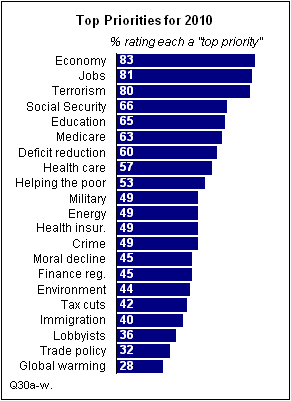Saigon
Gold Member
This came up on another thread, and I mentioned that I would present some research that I found very compelling...
There are a few things I admit about this guy -
1) He combines hard core field work he does himself alongside models and satellite work
2) He is very quick to point out faults or potential problems with his methodology
3) He doesn't make wild claims, and sticks to his area of speciality
4) His work is ongoing, and sits alongside similar studies done by other researchers in other parts of the world. One of his colleagues recently published a work which concluded that 99% of Alaska's glaciers are retreating.
Anthony Arendt has a PhD in geophysics and is an assistant research professor at the University of Fairbanks Alaska, and has worked with glaciers for many years now. He has been involved in a cluster of inter-related studies on various aspects of the glaciers.
His research covers:
- assessing contribution of glaciers and ice sheets to rising sea level
- modeling glacier response to climate change
- downscaling remote sensing data for hydrological modeling
- validation of high-resolution satellite gravimetry (GRACE) data
- development of aircraft and satellite laser altimetry mass balance methods
Here is an overview, some findings, and then links to details:
Overview:
"We have used satellites to measure the mass changes of all of Alaska's glaciers, but there are also many glaciers that need to be measured in the field," Arendt said. "We need these field observations to better understand the processes that are controlling glacier changes."
Glacial patterns are difficult to predict -- even for current computer models. Alaska glaciers often behave independently of one another. They retreat and surge, and are subject to volcanic and oceanic influences, in addition to changes in precipitation and warming temperatures. Data collected in the field will help refine existing models, so that a more accurate picture of changing sea level can be drawn.
"Alaska glaciers have been losing mass more rapidly since the mid-1990s than they were several decades earlier," Arendt states in the article. "Understanding whether this trend continues will require an integration of observations across disciplines, as well as the development of robust glacier simulation models."
Assessing the influence of Alaska glaciers is slippery work
Methodology:
Anthony Arendt, a graduate student in geophysics, and his supervisor Keith Echelmeyer, a professor of geology and geophysics, documented glacial elevations by flying a small plane over the ice rivers and using laser instruments to measure the surface below them. Arendt compared the data with the elevations recorded on topographical maps made in the 1950s by the U.S. Geological Survey.
On 67 glaciers ranging from the western Alaska Range to Southeast Alaska, the average rate of thinning was almost a half-meter, or 20 inches, each year from the 1950s to the mid-1990s. On 27 of the glaciers, Arendt also calculated ice losses for just the last half of the 1990s, the time when the project was being conducted. There, he found average annual ice thinning of about one meter, or nearly 40 inches.
Extrapolating from the data on the 67 glaciers to all of Alaska's glaciers, Arendt and the other researchers figured the total loss at 12 cubic miles of water-equivalent ice annually since the mid-1950s, with an error of plus or minus 1.67 cubic miles. From the mid-1990s through 2001, the glaciers lost 22 cubic miles annually, plus or minus 6.7 cubic miles.
Arendt said there are some obvious limitations to their method that introduce errors into the ice-loss estimates, which required the inclusion of plus-or-minus qualifications on their figures. The largest error probably comes from the old maps.
"The maps were made from aerial photographs and some of them have poor geodetic controls and some of them also have poor accuracy especially at the higher elevations where there is a lot of snow cover," Arendt told the Fairbanks Daily News-Miner.
Glaciers shrink far faster in the last decade | Juneau Empire - Alaska's Capital City Online Newspaper
Conclusions:
We have used airborne laser altimetry to estimate volume changes of 67 glaciers in Alaska from the mid-1950s to the mid-1990s. The average rate of thickness change of these glaciers was -0.52 m/year. Extrapolation to all glaciers in Alaska yields an estimated total annual volume change of -52 +/- 15 km3/year (water equivalent), equivalent to a rise in sea level (SLE) of 0.14 +/- 0.04 mm/year. Repeat measurements of 28 glaciers from the mid-1990s to 2000-2001 suggest an increased average rate of thinning, -1.8 m/year. This leads to an extrapolated annual volume loss from Alaska glaciers equal to -96 +/- 35 km3/year, or 0.27 +/- 0.10 mm/year SLE, during the past decade. These recent losses are nearly double the estimated annual loss from the entire Greenland Ice Sheet during the same time period and are much higher than previously published loss estimates for Alaska glaciers. They form the largest glaciological contribution to rising sea level yet measured.
Anthony A Arendt | ResearchGate
What's Happening to Alaska's Glaciers? | OurAmazingPlanet.com
Anthony Arendt
There are a few things I admit about this guy -
1) He combines hard core field work he does himself alongside models and satellite work
2) He is very quick to point out faults or potential problems with his methodology
3) He doesn't make wild claims, and sticks to his area of speciality
4) His work is ongoing, and sits alongside similar studies done by other researchers in other parts of the world. One of his colleagues recently published a work which concluded that 99% of Alaska's glaciers are retreating.
Anthony Arendt has a PhD in geophysics and is an assistant research professor at the University of Fairbanks Alaska, and has worked with glaciers for many years now. He has been involved in a cluster of inter-related studies on various aspects of the glaciers.
His research covers:
- assessing contribution of glaciers and ice sheets to rising sea level
- modeling glacier response to climate change
- downscaling remote sensing data for hydrological modeling
- validation of high-resolution satellite gravimetry (GRACE) data
- development of aircraft and satellite laser altimetry mass balance methods
Here is an overview, some findings, and then links to details:
Overview:
"We have used satellites to measure the mass changes of all of Alaska's glaciers, but there are also many glaciers that need to be measured in the field," Arendt said. "We need these field observations to better understand the processes that are controlling glacier changes."
Glacial patterns are difficult to predict -- even for current computer models. Alaska glaciers often behave independently of one another. They retreat and surge, and are subject to volcanic and oceanic influences, in addition to changes in precipitation and warming temperatures. Data collected in the field will help refine existing models, so that a more accurate picture of changing sea level can be drawn.
"Alaska glaciers have been losing mass more rapidly since the mid-1990s than they were several decades earlier," Arendt states in the article. "Understanding whether this trend continues will require an integration of observations across disciplines, as well as the development of robust glacier simulation models."
Assessing the influence of Alaska glaciers is slippery work
Methodology:
Anthony Arendt, a graduate student in geophysics, and his supervisor Keith Echelmeyer, a professor of geology and geophysics, documented glacial elevations by flying a small plane over the ice rivers and using laser instruments to measure the surface below them. Arendt compared the data with the elevations recorded on topographical maps made in the 1950s by the U.S. Geological Survey.
On 67 glaciers ranging from the western Alaska Range to Southeast Alaska, the average rate of thinning was almost a half-meter, or 20 inches, each year from the 1950s to the mid-1990s. On 27 of the glaciers, Arendt also calculated ice losses for just the last half of the 1990s, the time when the project was being conducted. There, he found average annual ice thinning of about one meter, or nearly 40 inches.
Extrapolating from the data on the 67 glaciers to all of Alaska's glaciers, Arendt and the other researchers figured the total loss at 12 cubic miles of water-equivalent ice annually since the mid-1950s, with an error of plus or minus 1.67 cubic miles. From the mid-1990s through 2001, the glaciers lost 22 cubic miles annually, plus or minus 6.7 cubic miles.
Arendt said there are some obvious limitations to their method that introduce errors into the ice-loss estimates, which required the inclusion of plus-or-minus qualifications on their figures. The largest error probably comes from the old maps.
"The maps were made from aerial photographs and some of them have poor geodetic controls and some of them also have poor accuracy especially at the higher elevations where there is a lot of snow cover," Arendt told the Fairbanks Daily News-Miner.
Glaciers shrink far faster in the last decade | Juneau Empire - Alaska's Capital City Online Newspaper
Conclusions:
We have used airborne laser altimetry to estimate volume changes of 67 glaciers in Alaska from the mid-1950s to the mid-1990s. The average rate of thickness change of these glaciers was -0.52 m/year. Extrapolation to all glaciers in Alaska yields an estimated total annual volume change of -52 +/- 15 km3/year (water equivalent), equivalent to a rise in sea level (SLE) of 0.14 +/- 0.04 mm/year. Repeat measurements of 28 glaciers from the mid-1990s to 2000-2001 suggest an increased average rate of thinning, -1.8 m/year. This leads to an extrapolated annual volume loss from Alaska glaciers equal to -96 +/- 35 km3/year, or 0.27 +/- 0.10 mm/year SLE, during the past decade. These recent losses are nearly double the estimated annual loss from the entire Greenland Ice Sheet during the same time period and are much higher than previously published loss estimates for Alaska glaciers. They form the largest glaciological contribution to rising sea level yet measured.
Anthony A Arendt | ResearchGate
What's Happening to Alaska's Glaciers? | OurAmazingPlanet.com
Anthony Arendt




